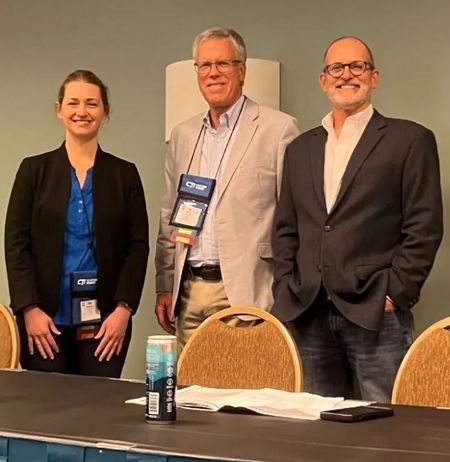Start promoting HVAC&R industry to younger students, IIAR panelists urge
March 23, 2023

To overcome the shortage of natural refrigerant technicians, an effort to educate students about the HVAC&R industry has to start early in the educational process, according to the participants at a session at the International Institute of Ammonia Refrigeration (IIAR)’s Natural Refrigeration Conference and Expo.
The Solving the Technician Shortage session – hosted by the North American Sustainable Refrigeration Council (NASRC) – was moderated by NASCR’s Executive Director, Danielle Wright, and included panelists Bryan Beitler, the Vice President of HVAC&R services group CoolSys, and Darrow Soares, Professor Emeritus of Air-Conditioning and Refrigeration at Mt. San Antonio College. The IIAR Natural Refrigeration Conference and Expo took place in Long Beach, California, March 12–15.
One of the main challenges is to increase the pipeline of candidates entering the HVAC&R industry, said Wright, particularly the commercial and industrial refrigeration sectors, which are often overlooked by recruits.
“We need to get started on a long-term program at the lower levels [of education],” said Beitler. “We need to be sharing the right information at the right time.”
“The marketing has to start earlier,” added Soares. “We’re starting way too late; high school is too late. It needs to start at least in junior high school.”
To overcome this issue and market refrigeration as a viable and satisfying profession, NASRC is working with Gladeo– which offers “career navigation” advice – to develop a career profile and promotional video for natural refrigeration.
The council is also organizing student recruiting events.
Critical technician shortage
“The commercial refrigeration industry faces an increasingly critical technician shortage that is disrupting essential operations, creating a bottleneck to transitioning away from HFC refrigerants and threatening U.S. supermarkets’ ability to meet new regulatory requirements,” explained the NASRC on its website.
“The service workforce is critical to successfully navigating [a] changing refrigeration industry landscape,” it said. “Yet the lack of new technicians entering the refrigeration trade combined with retirement and burnout have created a significant labor gap.”
In addition to discussing NASRC’s recent technician workforce assessment, participants explored key challenges within the sector and strategies to strengthen workforce recruitment, training and retention.
According to Wright, while there are clear advantages to working within HVAC&R, such as job security, flexibility and good income, there are also clear disadvantages like burnout, unsustainable schedules and physicality.
Despite the fact that many stakeholders are mitigating these problems, efforts are often conducted in siloes, with no industry-wide coordination, she said.
Educating the educators
For training, the session’s participants discussed the importance of regional advisory committees – which set the standard for curriculum – and instructors’ becoming familiar with the latest developments in natural refrigerants.
“Very few trainers or instructors have hands-on experience with CO2 [R744], limiting their ability to share knowledge,” said Beitler. “So, how do we educate the educators?”
Opening up industry training on CO2 and other natural refrigerants to colleges would be useful, he said.
Wright added that the NASRC is also working on developing a curriculum for CO2, as well as a regional advisory board.
According to Beitler and Soares, another aspect of training that needs to be improved is work-based learning, which encounters a number of hurdles relating to logistics, management and customer-relations.
More data are needed on workforce retention to adequately map gaps and better understand why people are leaving the industry, concluded Wright.
NASRC training summit
To support a more sustainable technician workforce within the sector, NASRC and utility provider Southern California Edison (SCE) are cohosting a free in-person natural refrigerant training summit in Irwindale, California, which will take place April 4–6.
The three-day event will provide technician trainings on CO2 and propane (R290) from multiple manufacturers and industry experts, including U.S.-based manufacturer Emerson. Other participating companies include Hillphoenix, Hussmann and Kysor Warren, which is owned by Epta.
During the summit, Emerson, which is a premium sponsor of the event, will offer free on-site CO2 training and education for refrigeration technicians. The manufacturer’s training will include an introduction to CO2 refrigeration, allowing attendees to get a basic understanding of R744 system architectures, pressure management, safety and handling.
“As the phased transition to lower-GWP refrigeration technologies continues, Emerson is committed to the training and support of a sustainable technician workforce,” said Andre Patenaude, Director of Solutions Strategy for Emerson’s Climate Technologies business. “Our CO2 transcritical booster training unit allows us to make refrigerant training and education hands-on and accessible.”
North American Technician Excellence (NATE) credits will be offered to all technicians who attend Emerson trainings at the event.


